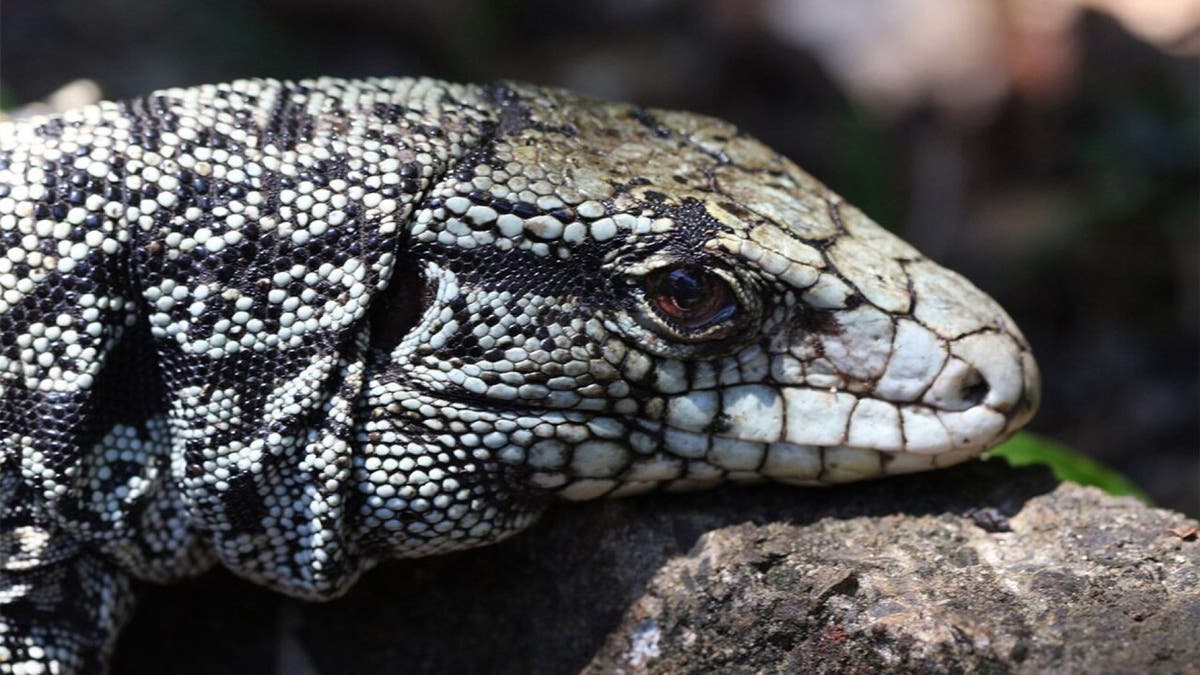Fox News Flash top headlines for May 14
Fox News Flash top headlines are here. Check out what's clicking on Foxnews.com.
Wildlife officials in Georgia recently issued a warning about Argentine black and white tegus, 4-foot-long omnivorous reptiles that have been spotted in at least two counties.
But earlier this week a conservation group minced no words on how urgent the need is to eradicate the predator from the state.
“Tegus seen in Georgia can and should be shot on sight,” the Orianne Society wrote in a Facebook post.
The Orianne Society is a Georgia-based nonprofit dedicated to the conservation of reptiles, amphibians and their ecosystems. But in the Argentine tegu, the group sees an emergency that can’t be ignored.
“These large lizards are voracious predators that have been found consuming a variety of natural wildlife in the longer-established Florida populations,” the group wrote Monday. “A fondness for eggs makes their current proximity to Gopher Tortoise and Eastern Indigo Snake populations even more concerning.”
GEORGIA FACES INVASIVE 4-FOOT LIZARD SPECIES, ARGENTINE BLACK AND WHITE TEGU, WILDLIFE OFFICIALS SAY
Three years of captures in southern Georgia suggest that previous assumptions the creature could not adapt to Georgia winters were untrue, the Orianne post said.

Georgia wildlife authorities are trying to eradicate the invasive Argentine black and white tegu — an omnivorous lizard that can grow up to four feet long and is now established in Toombs and Tattnall counties.
The group says the lizard’s presence in Georgia’s Toombs and Tattnall counties is currently being studied by Georgia Southern University’s Department of Biology and the U.S. Geological Survey. It advises that any sightings of the lizard in Georgia be reported to the state Department of Natural Resources – along with a photo of the lizard, if possible.
CLICK HERE TO GET THE FOX NEWS APP
The creatures can weigh more than 10 pounds and eat a variety of small animals, eggs of protected species, fruits, vegetables and insects, according to the Georgia DNR.
Keeping tegus is legal in Georgia but releasing them into the wild is not, the department notes.
Fox News’ Michel Ruiz contributed to this story.









































